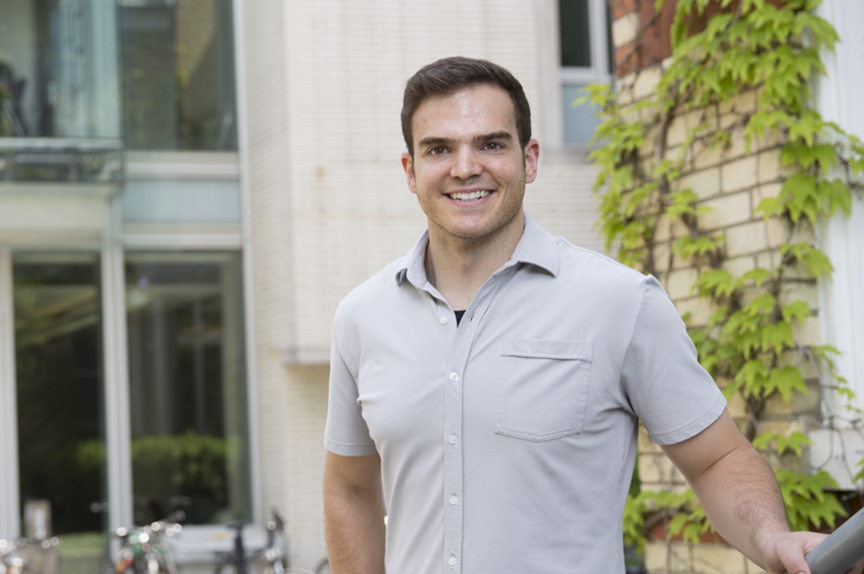Materials Science and Engineering
Program Overview
The Department of Materials Science & Engineering offers a diverse range of graduate programs designed to prepare students for leading roles in the field. Graduate offerings include the Master of Applied Science (MASc), Master of Engineering (MEng), and Doctor of Philosophy (PhD) degrees, each offering research opportunities in various disciplines.
Master of Applied Science (MASc) The MASc program is research-intensive and designed for students who are interested in pursuing advanced studies and research in materials science and engineering. This program typically takes two years to complete and involves a combination of coursework and a thesis project. Students work closely with faculty members on cutting-edge research projects, gaining deep expertise in their chosen area of specialization. For more information about our MASc program, visit MSE MASc Program webpage.
Doctor of Philosophy (PhD) The PhD program is the highest level of graduate study, aimed at students who wish to contribute original research to the field of materials science and engineering. This program involves rigorous coursework, comprehensive exams, and the completion of a dissertation based on original research. PhD students work under the guidance of a faculty advisor and contribute to the advancement of knowledge through their research findings. For more information about our PhD program, visit MSE PhD Program webpage.
Master of Engineering (MEng) The MEng program is a professionally oriented degree designed to provide advanced knowledge and skills in materials science and engineering. The MSE MEng program is designed with flexibility in mind, offering full-time, extended full-time, or part-time study options. Students in the MEng program are required to complete 10 half-credit courses, with at least 3 courses within the MSE department. The remaining 7 courses can be chosen from other engineering departments to align with students’ career goals and specialization interests. An optional MEng Project, equivalent to 3 courses, provides students with the opportunity to conduct research under the supervision of a professor. This project allows students to delve deeper into their chosen area of specialization and gain practical research experience. For more information about our MEng program and its emphasis options, visit MSE MEng Program webpage and What Our MEng Students Say
Research Areas the department covers a wide spectrum of research areas, including:
- Additive & Advanced Manufacturing
- Advanced Characterization & Forensics
- Biomaterials
- Nanomaterials, 2D & Composite Materials
- Coating & Surfaces
- Computational Materials & Data Analytics
- Smart Materials & Devices
- Electronics, Photonics & Sensors
- Energy Generation & Storage
- Sustainable Materials Processing
Beyond traditional materials science, the MSE curriculum integrates analytics and AI applications. This involves employing advanced simulation and computational modeling techniques that utilize data-driven approaches to optimize materials properties, predict performance, and enhance manufacturing processes, thereby fostering innovation and discovery in materials science.
The department commitment extends to developing sustainable materials processing and manufacturing methods that incorporate life cycle analysis and material recycling principles. By cultivating a deep understanding of structure-property-processing relationships and promoting cutting-edge research in analytics and AI, our programs prepare graduates to tackle complex challenges and drive advancements in materials science and engineering.
Join us at the forefront of innovation in materials science. Explore our graduate programs to discover how you can contribute to shaping the future of this dynamic field.
For more information on MSE research areas, please visit MSE Research Areas webpage
Quick Facts
| Domestic | International | |
|---|---|---|
| Application deadline | MASc, PhD: Fall 2025 entry 02-Feb-2025 MEng:Fall 2025 entry 01-Jun-2025 | MASc, PhD: Fall 2025 entry 02-Feb-2025 MEng:Fall 2025 entry 01-May-2025 |
| Minimum admission average | MASc: A Bachelor of Applied Science (BASc) in Engineering or Bachelor of Engineering (BEng) with a minimum average of B+ (78%+) over the final two (2) years of an undergraduate program from an accredited institution PhD:Successful completion of a research master’s degree in engineering, with an overall average of at least B+ (78%+), from an accredited institution. MEng:A Bachelor of Applied Science (BASc) in Engineering or Bachelor of Engineering (BEng) with a minimum of B (73%+) over the final two (2) years of an undergraduate program from an accredited institution | MASc: A Bachelor of Applied Science (BASc) in Engineering or Bachelor of Engineering (BEng) with a minimum average of B+ (78%+) over the final two (2) years of an undergraduate program from an accredited institution PhD:Successful completion of a research master’s degree in engineering, with an overall average of at least B+ (78%+), from an accredited institution. MEng:A Bachelor of Applied Science (BASc) in Engineering or Bachelor of Engineering (BEng) with a minimum of B (73%+) over the final two (2) years of an undergraduate program from an accredited institution |
| Direct entry option from bachelor's to PhD? | PhD: Yes A- over the final four sessions of undergraduate studies | PhD: Yes A- over the final four sessions of undergraduate studies |
| Is a supervisor identified before or after admission? | MASc, PhD: must be identified/secured before admission | MASc, PhD: must be identified/secured before admission |
| Is a supervisor assigned by the graduate unit or secured by the applicant? | MASc, PhD: Secured by the applicant and approved by the graduate unit | MASc, PhD: Secured by the applicant and approved by the graduate unit |
| Are any standardized tests required/recommended? | MASc, MEng, PhD: NA | MASc, MEng, PhD: NA |

“If you’re passionate about research or developing new ideas and technology, graduate study is a great option.”
- Matthew Genovese
- Alumnus, PhD, Materials Science & Engineering
